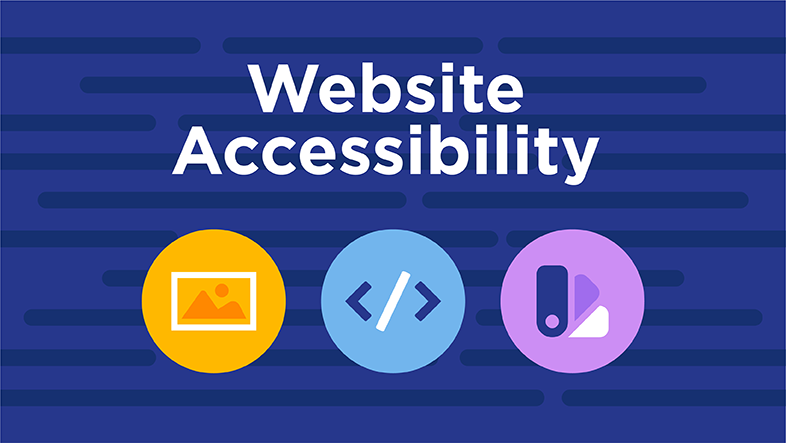By Lisa Larson and Bronwen Tedesco on 26 July 2022
Looking for a home can be a long and taxing process for many people, but imagine having the additional barrier of being unable to search online, or lacking access to search options that accommodate your disabilities. To get a deeper understanding of the constraints caused by inadequate website accessibility, we invited Bronwen Tedesco to share her story about her first property search out of college, and offer insights into how far the real estate industry still has to go to accommodate those with disabilities trying to navigate the housing market.
Searching for a house you cannot see
All blind and disabled people encounter a common challenge most sighted people do not understand: website inaccessibility. As a recent college graduate and someone who is totally blind, I attempted to do my own independent search for a new apartment to rent.
I feel like my experiences and those of others in the same position are overlooked, if not ignored, because of common misconceptions about blind people. If blind people were held to the same expectations as their counterparts, there would not be discussions about making the housing market fully accessible in 2022 because it would have happened a long time ago, when screen readers first started being used. Technology companies must assume that someone will just help us, rather than making it accessible enough to do it ourselves.
How the ADA protects disabled consumers
The goal of the ADA is to ensure by law that all people with disabilities participate in all aspects of society. In the twenty-first century, much of what we do in life is digital. When websites are not accessible, people with disabilities are not able to fully participate in society because whatever they are prevented from doing in that moment limits their participation. In our day and age, the internet is a part of society and under the ADA, people with disabilities have the right to participate fully in their communities.
Approximately one billion people worldwide have a visual disability. The term vision loss, visual disability or visually impaired refers to individuals who reported that they are blind or unable to see at all or have trouble seeing even when wearing glasses or contact lenses. In American alone, there are at least 20 million people affected and 90 percent of Americans use the internet.
When websites are not accessible, a significant portion of the population lags behind, unable to perform simple tasks such as filling out forms online, applying for jobs and internships, online shopping, etc. Is buying a house or renting an apartment any different?
House searching is not something that can be done completely independently, at least not for now, but there have been steps in the right direction.
When will the tech catch up to the needs of visually impaired consumers?
Some websites have property descriptions of the images displayed on their listings but many do not. There are vague property descriptions of kitchens and rooms if lucky, otherwise the accessible tagged images with alt text are mainly banners and company logos that read as “graphic” or “no description available.” Many text descriptions are not useful and provide no information about properties, as if to say, “Well, at least we have alt text and are avoiding these lawsuits.” Some companies genuinely try, while others just have random bits of useless alt text all over the place not necessarily related to the properties, in no way serving the purpose of alt text. Sadly, it appears to a blind person that some companies just want to avoid being sued, or simply just don’t care. By not making sincere efforts to ensure that house searching is doable for people who are blind, it also exacerbates the stereotype that all blind people have caregivers, which in many cases is not true.
When done properly, “Text to speech” screen readers read aloud what is on the screen, allowing users to execute functions with keystrokes such as reading specific sets of text on computer screens, cell phones, iPads and tablets. When an application or website is not accessible with a screen reader, it means it is not compatible, no matter how it runs on the device and looks to people with sight. If a user cannot carry out functions using a screen reader, it is not accessible!
The lack of website accessibility is surprising in times when new technology is so readily available. I was excited to learn, just last week at the CoreLogic Client Summit there was a session dedicated to computer vision that addressed how Restb.ai can solve the ADA compliance issue by providing photo captions and detailed property descriptions for MLS's and all their Broker and Agent websites.
I hope you will encourage your company to make sincere efforts this year to make your property web sites ADA compliant and fully accessible to me and all visually impaired Americans. Website accessibility is extremely important - not only to avoid lawsuits, but to show everyone that they matter and that their live’s experiences are represented.
Interested in discovering what technologies you can adopt to inch your way closer to an ADA compliant and accessible website? Reach out to us for a chat!



comments